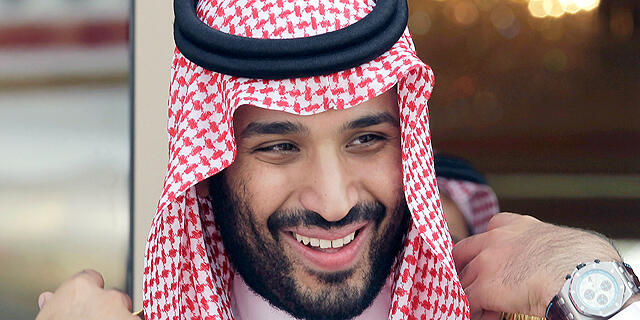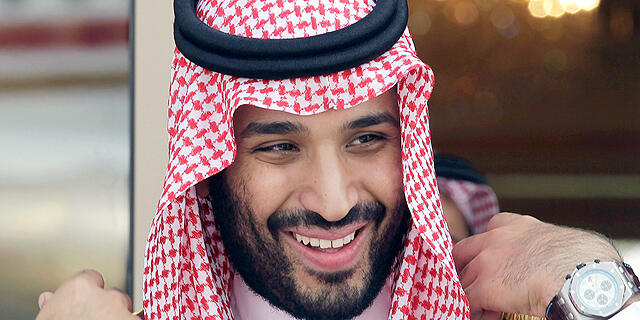
Analysis
Another BRIC in the wall: What Saudi Arabia’s joining BRICS means for the world
On January 1, six countries are expected to join the alliance of emerging economies. While Iran hailed the event as a victory for its foreign policy, Saudi Arabia still aims to clarify the terms of the membership and ensure that it will not be used as a "cash cow" for the weaker members
Iran, Saudi Arabia, the United Arab Emirates, Argentina, Egypt and Ethiopia were invited last week to join the BRICS (an acronym for the combined economies of Brazil, Russia, India, China, and South Africa) economic bloc at the end of the summit of member states held in Johannesburg. The countries were invited to join starting January 1, 2024. The leaders of South Africa, China, India and Brazil participated in the summit, with only Russian President Vladimir Putin absent due to an international arrest warrant issued against him.
This is the second time since its foundation that BRICS has decided to expand, although this time it is a much more significant expansion. The bloc was established in 2009 by Brazil, Russia, India and China while South Africa joined a year later. According to reports, BRICS received applications from 23 countries that expressed interest in joining, but in the end only six applications were approved. Those who have not been approved at this stage are, among others, Bolivia, Cuba, Honduras, Venezuela, Algeria and Indonesia. The heads of the BRICS do not act transparently and therefore did not publish the criteria for joining.
The bloc has a significant economic potential, although it has not been fulfilled so far due to internal disagreements (mainly between China and India). About 42% of the world's population lives in these countries, which control about 20% of world trade and 32.1% of GDP, more than the G7 group. The founders also include three nuclear powers - China, Russia and India.
What the BRICS members have in common is what they see as an imbalance in the international system between the "North" (led by the United States and the European Union) and the "South". Mainly there is dissatisfaction with the conduct of the financial system, which in the view of the BRICS members is under Western hegemony. Therefore, these countries aim to increase their influence in order to bring about reforms in the activities of bodies such as the World Bank and the International Monetary Fund.
For the new countries that received an invitation to join, and especially Saudi Arabia, the Emirates, and Egypt, it seems that the main consideration is their desire to look for alternatives to strengthen political and economic ties, in view of what they interpret as the decline in interest of their main ally, the United States, in the affairs of the Middle East. It can be estimated that the American administration is not pleased about their joining a bloc with China and Russia, certainly not at the current time, but officially they downplayed the importance of the move. Official spokespeople on behalf of the federal government stated at the end of the week that they do not see the BRICS expansion as a rival geopolitical bloc and emphasized that the countries have the right to connect in alliances that they find appropriate.
The one who was least impressed by the reaction of the United States was Iran, which "celebrated" the invitation to join BRICS. Official Iranian spokespeople described this development in South Africa as a "strategic success for Iranian foreign policy." The most moderate reaction was heard from Saudi Arabia after its foreign minister, Prince Faisal bin Farhan, stated that the kingdom was waiting for more details on the "nature of the membership", apparently a hint that Saudi Arabia wants to make sure that the BRICS members did not approve their membership just so that it would become a "cash cow" in terms of funding the weaker countries, and that it expects to receive something in return.
There is no doubt that of all the countries invited to join, Saudi Arabia is the most significant, both politically and economically. At the political level, Saudi Arabia has traditionally been considered the closest ally of the United States in the Gulf region. In the last three years, relations between Riyadh and Washington have cooled for a variety of reasons (among others, due to disputes over human rights, the war in Yemen, and the oil market), and Saudi Arabia has begun to flutter its eyes at China.
Despite this, in recent months, Saudi Arabia and the United States have been engaged in intensive and in-depth negotiations on a comprehensive security-nuclear-economic agreement (which should also include Saudi-Israeli normalization). The fact that Saudi Arabia will join a bloc with China to strengthen ties between Riyadh and Beijing was not warmly welcomed in the United States, although it does not seem that this will interfere with the continuation of the Saudi-American dialogue.
From an economic point of view, the weight of Saudi Arabia is extremely significant for the BRICS bloc. It is the largest Arab economy with an annual GDP of over $1 trillion. In addition, it is one of the most significant players in the global oil market (traded in US dollars), which is responsible for approximately 15% of the world's proven oil reserves. The diversification plan of the Saudi economy and the increase in oil revenues due to the Russian invasion of Ukraine is a sign for the BRICS bloc that Saudi accession will potentially lead to an increase in its financing capabilities.
According to reports, not all BRICS members agreed on the need to expand the bloc as well as on the identity of the new entrants. Beyond that, despite all the statements in recent years, there is no agreement between the countries regarding the establishment of an alternative currency that could challenge the hegemony of the dollar in the world system. There is agreement on one thing, and that is the expansion of the activities of one of the pillars of the bloc - the New Development Bank (NDB) - which aims to increase its resources.
In May of this year, negotiations began with Saudi Arabia so that it would join the bank, thereby strengthening its ability to finance projects in developing countries and to challenge the World Bank. The negotiations with Saudi Arabia have not yet ended. NDB was established in 2014 and provides loans to countries in emerging markets under less demanding conditions than those of the International Monetary Fund and the World Bank.
In 2021, NDB welcomed new members — Bangladesh, United Arab Emirates, Uruguay and Egypt. Since its establishment, NDB has granted its member countries loans with a total value of approximately $30 billion, a small amount compared to the loans provided by the World Bank over the same period. For example, in 2021, the World Bank granted loans with a total value of approximately $100 billion to 190 countries, so at the moment it seems that even with Saudi Arabia joining the BRICS bank, it will have difficulty closing the existing gap between the two financial institutions.
Bottom line, although the BRICS bloc does not at this stage pose a threat to Western hegemony, its expansion is not symbolic, but rather a signal to the United States and the European Union regarding the dissatisfaction of a growing number of countries with the conduct of the "Northern" bloc.
Doron Peskin is an analyst of Middle Eastern economies and the head of Concord MENA, a company specializing in public sentiment analysis of Arab countries.














